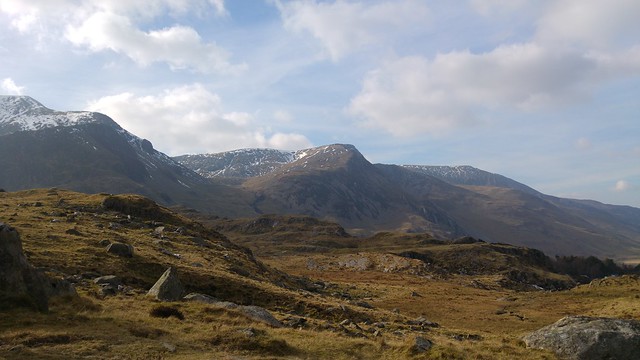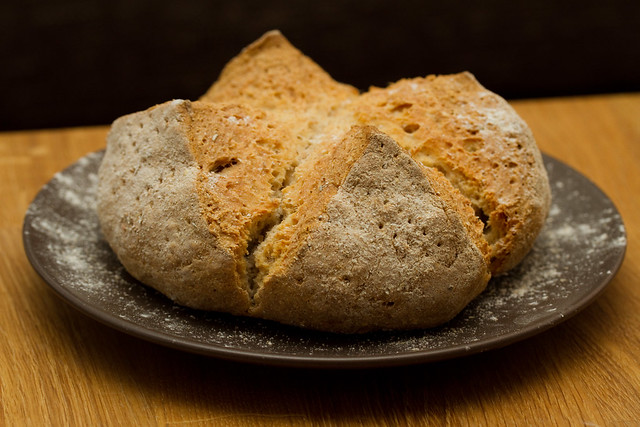Words for hill and related words in Celtic languages.

| Proto-Celtic |
*ardwos = high |
| Gaulish |
Arduenna = place name |
| Old Irish (Goídelc) |
ard [ar͈d] = high, height |
| Middle Irish (Gaoidhealg) |
ard, árd = high above ground, elevated, lofty, tall, noble, great, proud, arduous, high place, height
ardach = hilly
ardae, airde = height, high place, nobility, loudness
ardaid = to rise
ardaigid = to raise, magnify, exalt
ardán = pride, arrogance
ardri = high king |
| Irish (Gaeilge) |
ard [ɑːɾˠd̪ˠ/æːɾˠd̪ˠ] = height, hillock, top, high part, elevation, head, rise, ascent
ardaigh = to raise, elevate, ascend, carry
ardaitheoir = lift, elevator
na farraigí arda = the high seas
sála arda = high heels
Ard-Aifreann = High Mass
Ard-Aighne = Attorney-General
ardaingeal = archangel |
| Scottish Gaelic (Gàidhlig) |
àrd [aːr̪ˠd] = high, lofy, tall, great, loud, chief, eminent, superior, supreme
àrd-bheinn = pinnacle |
| Manx (Gaelg) |
ard [ø(r)d] = high, towering, tall, big, loud, height, high place, fell, incline |
| Proto-Brythonic |
*arð = high |
| Middle Welsh (Kymraec) |
ard, art = hill |
| Welsh (Cymraeg) |
ardd [arð/aːrð] = hill, highland, top, high, upland |
| Middle Cornish (Cernewec) |
ard = high, lofty |
| Cornish (Kernewek) |
ardh = height, high place |
| Breton (Brezhoneg) |
arz = high, elevated, lofty |
Etymology: from the Proto-Indo-European *h₃r̥dʰwós, from *h₃erdʰ- (to increase, grow, upright, high) [source], which is also the root of the Latin word arbor (tree) and words for tree in Romance languages [source].
| Proto-Celtic |
*knokkos = protuberance, hill |
| Old Irish (Goídelc) |
cnocc [knok] = hill, lump, swelling
cnoccach [ˈknokax] = hilly, lumpy
cnocán [ˈknokaːn] = little lump, mound, hill |
| Middle Irish (Gaoidhealg) |
cnocc = lump, protruberance, hill, mound
cnoccach, cnocach = lumpy, hilly
cnoccán, cnocán = little lump, mound, hill |
| Irish (Gaeilge) |
cnoc [kn̪ˠɔk / kn̪ˠʊk/ kɾˠʊk] = hill, mount
cnocach = hilly
cnocadóir = hillman, hillclimber
cnocadóireacht = hill-climbing
cnocán = hillock, heap
cnocánach = hilly, uneven |
| Scottish Gaelic (Gàidhlig) |
cnoc [krɔ̃xg] = hill, small hill, hillock, knoll, chilblain
cnocach [krɔ̃xgəx] = hilly, rugged, abrupt
cnocaireachd [krɔ̃xgɛrʲəxg] = rough hill walking, pacing
cnocan [krɔ̃xgan] = hillock, ball of fibre |
| Manx (Gaelg) |
cronk = mount, tor, hill,
crongan = mound, small hill, tuffet, tumulus, hillock
cronkan = knoll, small hill, hillock |
| Proto-Brythonic |
*knox = hill, mound |
| Middle Welsh (Kymraec) |
cnwch = swelling, protuberance, thickness, hump |
| Welsh (Cymraeg) |
cnwc = hillock, knoll; swelling, tumour, lump, knob, hump
cnocell = hillock, knoll |
| Old Breton |
cnoch = hill |
| Middle Breton |
qnech, knech, crech, cre(a)c’h = high, height, mountain, hill
krec’hennek full of hills
krec’hiek = steep, sloping, incluned |
| Breton (Brezhoneg) |
krec’h = height, eminence, mound |
Etymology: from the Proto-Indo-European *kneg- (back of the head, nape, neck). The English word neck, and related words in other Germanic languages, come from the same root [source].
| Proto-Celtic |
*brusnyos = hill |
| Old Irish (Goídelc) |
bruinne = breast(s), bosom, chest; womb |
| Middle Irish (Gaoidhealg) |
bruinne, bruinde = breast, bosom, chest |
| Irish (Gaeilge) |
broinne = breast, bosom; brink, verge |
| Scottish Gaelic (Gàidhlig) |
broinne [brɤin̪ʲ] = belly, stomach; womb; bulge |
| Manx (Gaelg) |
brein = womb |
| Proto-Brythonic |
*bronnā = breast |
| Middle Welsh (Kymraec) |
bronn, bron = breast, bosom |
| Welsh (Cymraeg) |
bron [brɔn] = breast, bosom, thorax, hill-side, slope, breast (of hill)
bronallt, broniallt = gentle slope of hill, rising ground, wooded slope
bryn = hill, mount, rise, bank; heap, mound; prominence, highness |
| Middle Cornish (Cernewec) |
bron = a round protuberance, breast, pap, slope of a hill |
| Cornish (Kernewek) |
bronn / brodn [brɔn: / brɔdn] = breast, hill |
| Middle Breton (Brezonec) |
bron, bronn = breast, bossom, udder
bronnañ, bronnat, bronniñ = to breast feed |
| Breton (Brezhoneg) |
bronn [ˈbrɔ̃n] = breast |
Etymology: from Proto-Celtic *brusū (belly, abdomen, breast), possibly from the Proto-Indo-European *bʰrews- (belly, to swell) [source].
Words from the same Proto-Celtic root, via the Proto-West-Germanic *brunnjā (chainmail shirt), include: brynja (coat of mail) in Icelandic, Swedish and Faroese, brynje (mail, armour) in Danish, brynje (coat of armour, protective clothing for motorcyclists) in Norwegian, and броня [brɔˈnʲa] (armour, armoured vehicle, shell) in Ukrainian [source].
The English words breast, brisket and bruise come from the same PIE root, as do borst (chest, thorax, breast) in Dutch, Brust (chest, breast, bosom) in German, and bröst (breast, chest, thorax) in Swedish [source].
| Proto-Celtic |
*brixs / *brig- = hill |
| Gaulish |
*brignā, -brigā = hill |
| Old Irish (Goídelc) |
brí [bʲrʲiː] = hill |
| Middle Irish (Gaoidhealg) |
brí, bri = hill |
| Irish (Gaeilge) |
brí [bʲɾʲiː] = brae, hill |
| Scottish Gaelic (Gàidhlig) |
bre = hill, headland |
| Proto-Brythonic |
*breɣ [ˈbrɛːɣ] = hill |
| Welsh (Cymraeg) |
bre [bre] = hill, hillock, mountain, hill-country, upland, peak |
| Middle Cornish (Cernewec) |
bre = mountain, hill |
| Cornish (Kernewek) |
bre [brɛ: / bre:] = hill – appears as Bray or Brae in placenames |
| Middle Breton (Brezonec) |
bre = hill |
| Breton (Brezhoneg) |
bre [breː] = hill, mountain |
Etymology: from the Proto-Indo-European *bʰerǵʰ- (high) [source].
The Spanish word breña (scrub, brush, rough ground), the Portuguese word brenha (scrub, complication, confusion) come from the Gaulish *brignā, via the Vulgar Latin *brigna (rocky terrain) [source].
From the same PIE root we get the English words burrow and borough, and words in placenames such as burg, burgh and bury, and also the German Burg (castle), the Danish borg (castle, stronghold), and related words in other Germanic languages.
| Proto-Celtic |
*krowko- = heap |
| Old Irish (Goídelc) |
crúach = stack, mountain, hill |
| Middle Irish (Gaoidhealg) |
crúach,cruach = stack of corn, rick, heap, conical pile
crúachad = act of stacking, piling up
crúachán = small rick, hill
crúachda = swollen, piled up |
| Irish (Gaeilge) |
cruach [kɾˠuəx] = stack, rick, pile, (mountain) stack
cruachach = full of stacks
cruachadóir = stack-builder
cruachadóireacht = (act of) building stacks
cruachán = (small) stack; person of stunned growth
cruachóg = heap |
| Scottish Gaelic (Gàidhlig) |
cruach [kruəx] = pile, stack; round hill; clamp (stack)
cho seasgair ri luchag ann an cruach = as snug as a bug in a rug (“as snug as a mouse in a haystack”)
cruach-fheòir = haystack
cruach-mhòna, cruach mònach = peat-stack
cruach-sheangan = anthill |
| Manx (Gaelg) |
creagh = stack, furrow
creagh fendeilagh = barricade
creagh hraagh = haystack |
| Middle Welsh (Kymraec) |
krug, gruc, grvg = hillock |
| Welsh (Cymraeg) |
crug = hillock, knoll, cairn, tumulus, heap, mass, stack, group, company, multitude; pustule, abscess, boil, carbuncle |
| Old Cornish |
cruc = hillock |
| Middle Cornish (Cernewec) |
cruc, cruk, crŷc = hillock, mound, barrow |
| Cornish (Kernewek) |
krug = mound, tumulus |
| Old Breton |
cruc = hillock |
| Middle Breton (Brezonec) |
krug = pile, heap
krugell = pile, heap, hillock, mound, tumulus |
| Breton (Brezhoneg) |
krug = mound
krugell = hillock, tumulus |
Etymology: possibly from the Proto-Indo-European *krā(u)- (to heap up) [source].
| Proto-Celtic |
*tumbo- = excrescence hill |
| Old Irish (Goídelc) |
tom = bush, tuft, hillock, knoll |
| Middle Irish (Gaoidhealg) |
tom = bush, tuft, hillock, knoll |
| Irish (Gaeilge) |
tom [t̪ˠɑumˠ/t̪ˠʌmˠ] = bush, shrub
tomach = bushy, tufted
tomachán = small tuft |
| Scottish Gaelic (Gàidhlig) |
tom [tɔum] = hillock, knoll, mound, clump, heap, tuft
toman [toman] = small hillock
tomag [tomag] = small hillock/knoll/mound, small clump, small heap |
| Manx (Gaelg) |
tom = tussock |
| Middle Welsh (Kymraec) |
tom, tomm = dung(hill), manure, compost, dirt, muck |
| Welsh (Cymraeg) |
tom = dung(hill), manure, compost, dirt, muck, mud, mound, heap |
Etymology: possibly from the Proto-Indo-European *tewh₂- (to swell), and cognate with the English word tumulus.
Words marked with a * are reconstructions.
Sources: Wiktionary, Am Faclair Beag, Online Manx Dictionary, Teanglann.ie, eDIL – Electronic Dictionary of the Irish Language, In Dúil Bélrai English – Old Irish glossary, Geiriadur Prifysgol Cymru, Gerlyver Kernewek, Dictionaire Favereau, TermOfis, English – ProtoCeltic WordList (PDF), Etymological Dictionary Of Proto Celtic














